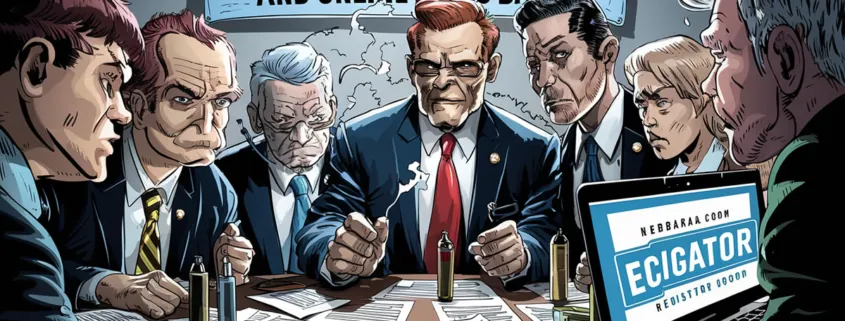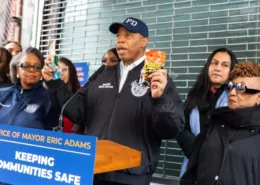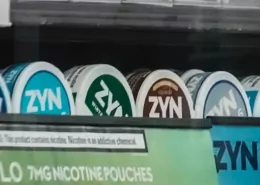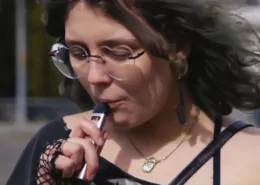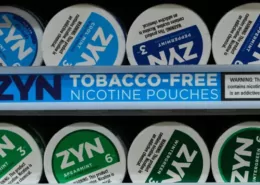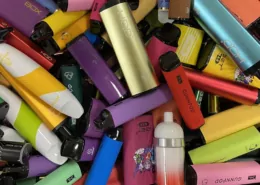Nebraska Vape Registry and Online Sales Ban Proposed
The Nebraska General Affairs Committee recently heard testimony on LB1296, a bill introduced by Sen. Jana Hughes of Seward, which aims to curb minors’ access to vaping devices in the state. The proposed legislation would prohibit the sale of electronic nicotine delivery systems (ENDS) that have not received approval from the U.S. Food and Drug Administration (FDA), with violations considered a deceptive trade practice under the Uniform Controlled Substances Act.
Addressing the Growing Problem of Youth Vaping
Sen. Hughes cited the increasing number of children using vaping devices as the primary motivation behind LB1296. She referenced an ongoing study by the University of Michigan’s Institute for Social Research, which found that nicotine vape is the most commonly used substance among eighth and 10th graders.
“We have a serious problem on our hands that threatens to undermine the progress made over the past 40 years in reducing the use of nicotine products by our kids,” Hughes stated.
Key Provisions of the Bill
Under LB1296, devices pending FDA approval would be authorized for sale, but online sales of ENDS, regardless of FDA approval status, would be prohibited. The bill also proposes the creation of a directory of ENDS manufacturers who have received or sought FDA approval.
Beginning April 1, 2025, each manufacturer would be required to register with the state tax commissioner and pay a $500 initial certification fee per device, as well as an annual fee of $500. The revenue generated would be directed to the Nebraska Department of Revenue to cover the costs of enforcing the bill’s provisions.
Support from the Attorney General and Industry Representatives
Nebraska Attorney General Mike Hilgers spoke in support of the proposal, noting that children’s access to harmful vaping products has been a top concern among residents across the state.
“We know in Lincoln it’s been a big issue,” Hilgers said, “but frankly, I’m not sure there’s been a community that has been untouched.”
He emphasized that the proposal is not intended to shut down the vape industry but rather to follow the FDA’s lead in ensuring that products on the market are safe and that children’s access to these products is limited.
David Sylvia, speaking on behalf of tobacco producer Altria, also testified in support of the proposal. He pointed out that local businesses have been losing customers to entities selling illicit products.
“The CDC estimates that about 50% of the e-vapor marketplace today in the United States consists of illicit products,” he said. “LB1296 will help us foster a regulated e-vapor marketplace … and help limit youth access.”
Kathy Gunlock, representing Core-Mark, highlighted the need for a product directory to help wholesalers and retailers comply with regulations, as the FDA does not publish a public list of ENDS pending approval.
Concerns from Educators
Kathryn Burger, an elementary school principal from York Public Schools, spoke in support of the measure, sharing that children as young as elementary students have brought vaping devices to school grounds. She emphasized that even if these products are not directly marketed to children, they will find them and be attracted to them.
Opposition from Vape Vendors
Sarah Linden, president of the Nebraska Vape Vendors Association and owner of Generation V, testified in opposition to the bill. She argued that the FDA’s application process has been challenged in court by over 30 vape manufacturers, with some courts finding it to be “arbitrary” and “capricious.” Linden claimed that LB1296 would eliminate “99.9% of all vapor products on the market” due to the flawed application process.
“[This bill] proposes the state of Nebraska use their scarce resources to enforce a failed FDA regulatory scheme, declared illegal by the courts, to shut down hundreds of Nebraska small businesses,” Linden said.
Jacob Marktikainen, co-owner of E-Titan Vapors, also testified in opposition, arguing that removing certain products from the market would lead to the emergence of an uncontrollable and unregulated black market. He cited unsuccessful efforts by other states to ban flavored tobacco products, which resulted in these products remaining available through online chat rooms and black market dealers who do not enforce age verification policies.
No Immediate Action Taken
The General Affairs Committee did not take any immediate action on LB1296 following the testimony. As the debate surrounding youth vaping continues, lawmakers must carefully consider the perspectives of supporters and opponents to strike a balance between protecting public health and the interests of small businesses in the vaping industry.
- Is It Illegal to Vape or Smoke While Driving in Massachusetts? - August 5, 2025
- Austria Plans to Ban Disposable E-Cigarettes - August 5, 2025
- Vaping vs. THC Drinks: Which Cannabis Option Is Right for You? - August 4, 2025

